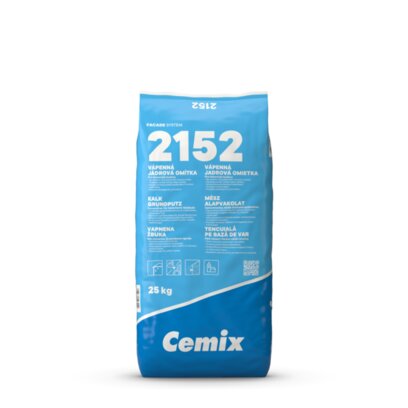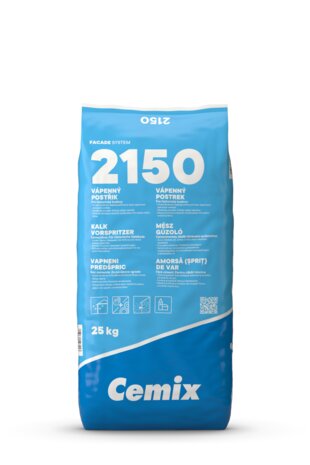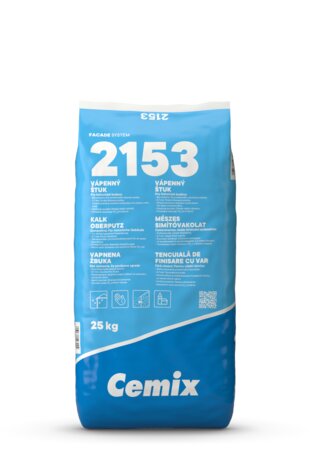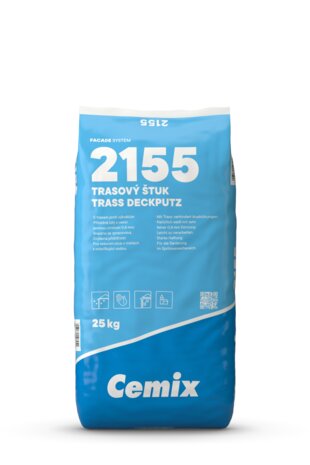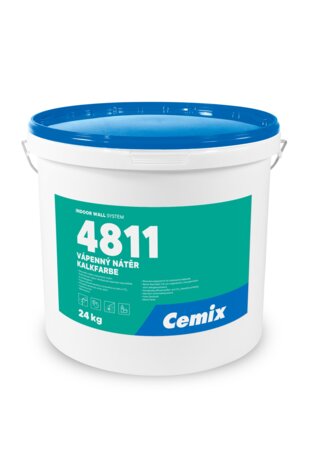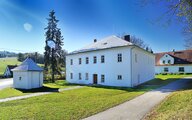2152
LIME BASE PLASTER
Formerly Name change (available during the year). Previous product 2752.
Lime plaster like in the old days
Pure lime with puzzolan. Cement-free.
- For traditional plastering of mainly historical buildings.
- Contains only pure lime, pozzolanic binder and no cement: Suitable for the professional renovation of historic masonry.
- Naturally absorbs CO2 from the room air.
- Diffusion open with anti-fungal properties for a good room climate.
- Contains pozzolan: reduces efflorescence.
- Long lasting: Pure lime naturally resists degradation.
Area of application
- Outdoors: wall + ceiling
- Indoor: wall + ceiling
- Suitable for monuments and historical buildings
- Vapour permeable
Processing method
- For hand and machine processing
- Pure lime plaster for historic buildings.
- For interior and exterior use.
- For stone, brick, mixed and other substrates.
- Suitable for healthy living (reduces CO2 content when is setting)
- For vapour permeable masonry.
RECOMMENDED SYSTEM PRODUCTS
Processing details
Learn more about technical details for processing this product.
Substrate requirement
The substrate must comply with the applicable standards, must be solid, free of loose particles, free of dust, paint, residues of demoulding substances and efflorescence. It must be sufficiently rough, dry and evenly absorbent. The surface shall not be frozen or water-repellent. The substrate must be stable in volume.
Substrate preparation
Depending on the absorbency of the substrate and the climatic conditions, it needs to be moistened. Spray the substrate with lime pre-sprinkler Cemix. If necessary, treat non-standard substrates with a suitable method to achieve the desired properties. The substrate must comply with applicable regulations, standards or material manufacturer's recommendations.
Preparation of the mixture
Prepare the material by pouring the dry mixture into the prescribed amount of water and mixing it. Use potable water or water complying with EN 1008 to mix the mixture. Mix using a slow speed propeller mixer. Mix to a homogeneous, lump-free mixture and leave to rest. Then mix again briefly. Use suitable machinery when processing by machine with the prescribed amount of water.
Water demand
| Quantity | Liters (Min) | Liters (Max) |
|---|---|---|
| 1 kg | 0,21 l | 0,25 l |
| 25 kg | 5,25 l | 6,25 l |
Mixing
Processing instructions
Apply the plaster to the surface. Then roughly level the surface with a straight edge or trowel to the desired flatness. After the plaster has set, use a trowel to level the surface to the desired flatness. The minimum setting time for core plaster is considered to be 2 days per 1 mm of applied layer. The plaster forms a base and leveling layer for finish plaster with a surface coating.
At the beginning of setting and hardening, protect the plaster from rapid drying due to sunlight, heat, wind, or low relative humidity. Plastered surfaces should be moistened with a sprayer or covered with damp geotextile as needed. Also protect the plaster from direct water or rain. The condition of the surface must be checked daily. The curing time is up to 14 days. Plaster must not be applied in winter or when night frosts are expected. See WTA guideline 2-7-01/D Lime Plasters in Historic Preservation. The plaster must not be left untreated in the exterior for long periods (especially over the winter period).
Application thickness
| Minimum layer thickness | 10 mm |
|---|---|
| Recommended layer thickness | 15 mm |
| Maximum layer thickness | 20 mm |
Consumption
Consumption renders
| Use Case | Min/Recommend/Max layer thickness | Applied thickness | Min. consumption in kg/m²/mm | Packaging size | Yield |
|---|---|---|---|---|---|
| In exterier | 10mm-20mm | 15 mm | 1.2 kg/m²/mm | 1 kg | 0.056 m² |
| In exterier | 10mm-20mm | 15 mm | 1.2 kg/m²/mm | 25 kg | 1.389 m² |
Working time (potlife)
120 min
Treatment after application
Non-absorbent materials prolong the maturation period.
After application, the direct negative effects of sun, heat, humidity and draughts should be avoided. Protect from frost and rain. Direct heating of the surface is prohibited.
Tool and cleaning instructions
Wash off tools with water immediately after finishing work. Clean dried residues mechanically.
References
Technical parameters
| Main binder | Lime hydrate |
| Made of material | Aggregate, pozzolanic binder, lime hydrate and additives improving the processing and utility properties of the plaster. |
| Flammability class | A1 |
| Max. grain size | 1,2mm |
| Adhesion after dry storage in ≥N/mm²(ETAG004) | 0.1 |
| Thermal conductivity λ in W/(m.K) | 0.39 |
| Water vapour diffusion resistance factor µ | 15 |
| Dry bulk density in Kg/m³ | 1200 |
| Dry bulk density in Kg/m³ to | 1400 |
Download
Contact: Can we help you?
Ask us your question. Write to us whenever you want. We will reply within 48 working hours.
Telephone 800 022 848
Contact us on the toll-free Customer hotline
- Opening hours: weekdays 7:30 a.m.–3:00 p.m.
- Email: info@cemix.cz
